The music of humanity
Dilip Simeon is a teacher and taught at many universities across India and the world
(Published in the Asian Age, January 30, 2014)
The force of love is the same as the force of the soul or truth. We have evidence of its working at every step
M.K. Gandhi
One of the most famous anti-fascist films was Charles Chaplin’s The Great Dictator, which subjected Hitler’s fantasies of global domination to withering satire. Less well-known was his first post-war movie, Monsieur Verdoux (1947), about a genial family man who makes a living by marrying and murdering wealthy widows. Upon being caught, this anti-hero says ‘Clausewitz said that war is the logical extension of diplomacy; Monsieur Verdoux feels that murder is the logical extension of business.’
All distinctions notwithstanding, this is where the common trajectories of modern history show themselves. A large segment of our official elites, businessmen, opinion-makers, and middle classes are accustomed to the view that some amount of bloodletting is inevitable in politics, a few thousand corpses and sundry riots and ‘encounters’ are an acceptable cost in return for the fantasy of progress, prosperity, and stability. Market fundamentalists decided long ago that untrammeled capitalism is good for humanity. That it is a fantasy does not matter – fantasies are meant to deflect our minds from intolerable reality. State power is now infused in criminality; with a brazenly partisan media playing drummer-boy, its fascination with petty crime in contrast to its silence on crime in high places. To cite Verdoux again, ‘It’s all business. One murder makes a villain. Millions, a hero. Numbers sanctify.’ Let’s wait and see where our demented arithmetical imagination takes us.
Many people believe that Gandhi needs a rest. He’s irrelevant, except as an icon. Is this true? I do not think so. Ahimsa remains crucial, especially when a growing sense of injustice calls for democratic agitation on a continental scale. It also relates to the ecological impact of militarism. His assassin’s accusation that Gandhi was emasculating Hinduism and rendering it impotent points us beyond stereotypes on gender and masculinity. As opposed to rampant consumerism, Gandhi’s frugal ideals remind us that fostering ceaseless growth with finite resources is like celebrating cancer. His condemnation of the atom bomb and of the urge to use science for destructive purposes resonates with contemporary concerns. His insistence on shramdaan and constructive work are a compass for activist energy. His talisman for public policy – the suggestion that we keep the humblest of individuals in mind – is both ethical and pragmatic. The warning delivered during his last months: that failure to resolve Hindu Muslim conflict would result in the sub-continent being doomed to condominium status under the great powers was prophetic. So was his critique of communally defined nationalism, implicit in his opposition to the transfer of population in 1947. His critical engagement with modernity was surely a necessary debate.
Gandhi’s mind worked in tandem with his heart and instinct. He had warned that partitioning India would not solve communal problems and that it would lead to catastrophic violence. He also warned that if the decision was taken and the two parties did not act with goodwill and trust, it would lead to a state of permanent animosity and conflict. In the last months of his life, he understood his isolation from Congress as well as from a large part of public sentiment. He said he felt as if he had been thrown into a fire pit, that his heart burned. About those who combined communal hatred with slogans of Akhand Hindustan, he remarked: ‘There is nothing in common between me and those who want me to oppose Pakistan except that we are both opposed to the division of the country. There is a fundamental difference between their opposition and mine. How can love and enmity go together?’
Gandhi derived his lessons from unremarkable things. Rather, he could see extraordinary truths in small events. He was a philosopher of the quotidian. Asked by his imaginary interlocutor (in Hind Swaraj) for historical evidence on soul-force or truth-force, Gandhi replies that the continued existence of human life despite incessant wars was proof enough. It was war and violence that made news, not the everyday love and co-operation that characterized the lives of millions. History did not record everything that happened but rather, ‘every interruption of the even working of the force of love or of the soul… you cannot expect silver ore in a tin mine.’ But he found his silver where he expected it. In 1947, two refugee women came to see him in Delhi. The first, a Hindu, had lost her son and daughter-in-law and was left with her grandchildren. The second was a Muslim who had no family. They were devoted to each other and wanted Gandhi’s blessings for their plan to bring up the little ones as joint grandchildren. The Mahatma was deeply moved and saw them as an embodiment of his passion for Hindu Muslim unity. And he gave an orange to each of the children.
- Revisiting Gandhi’s Hinduism: Lessons in Ethics, Tolerance and Inclusivity for the ‘New India’
- Freedom at Midnight: Revisiting Gandhi and his vision of India
The one stable feature of communal ideology is pessimism. To insist that people of different faiths, despite being neighbors for centuries are incapable of co-existence, is surely the most pessimistic belief there is. A year ago, the Pakistani writer Mobarak Haider wrote of Pakistan’s polity: ‘War is a tragedy but a society at war with itself and everything around, with no objective and no remorse is more than a tragedy; it is a total disaster.’ He went on to characterize it as being ‘in a state of schizophrenia passing into paranoia.’ Whether this assessment fits all of us is a matter of self-reflection.
In October 1947, All-India Radio arranged a special broadcast on Gandhi’s birthday and requested him to listen. He declined, saying he preferred rentio (the spinning wheel) to the radio. The hum of the spinning wheel was sweeter. He heard in it the “still sad music of humanity”. He refused to release his birthday messages from the world over – it felt futile when the public seemed to have lost faith in non-violence and truth. As we live through January 30 once more, as we replay the mindless rituals, let us think why, far from becoming irrelevant, Gandhi remains so real. It is because he drew meaning from ordinary things, especially those that signified the persistence of friendship and love amidst hatred and violence. That is why his life and message are so much a part of the “still sad music of humanity”. Today we can only hope that the sadness disperses and the music remains.
Goodbye, once again Bapu. Let’s hope we learn to deserve you.


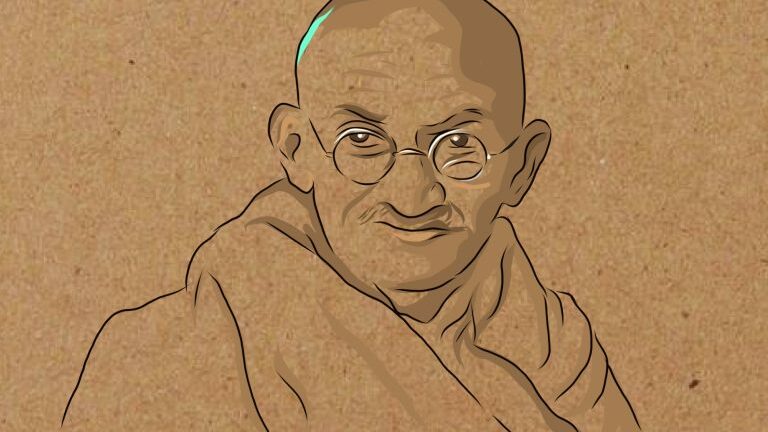
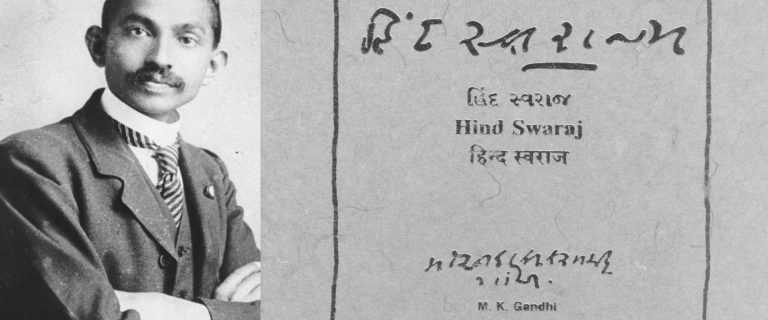
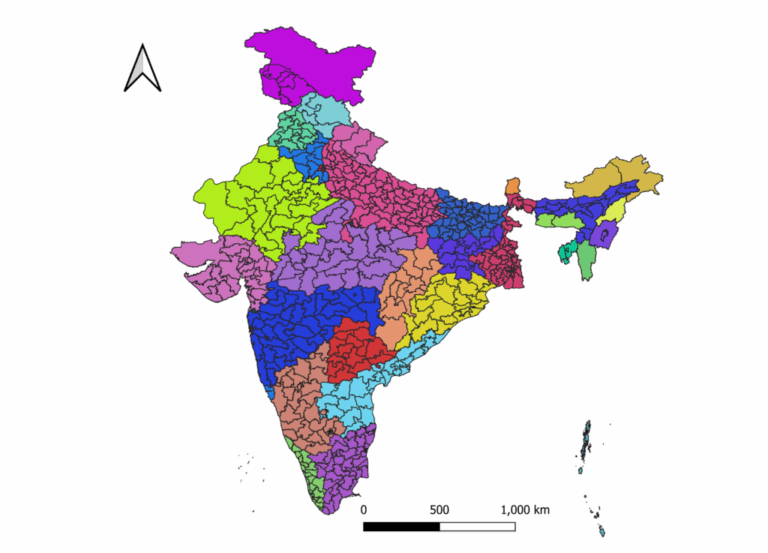

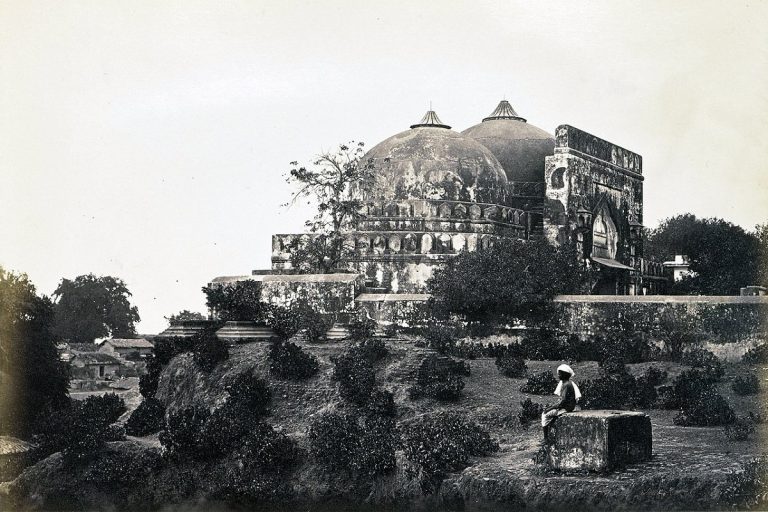
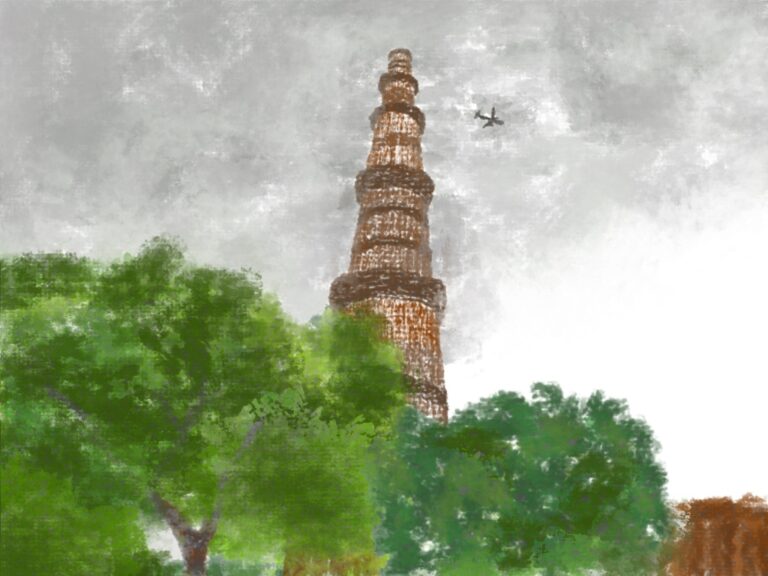
It’s true Gandhi’s ideas about peace, unity, and simple living still matter a lot today, maybe even more than before.